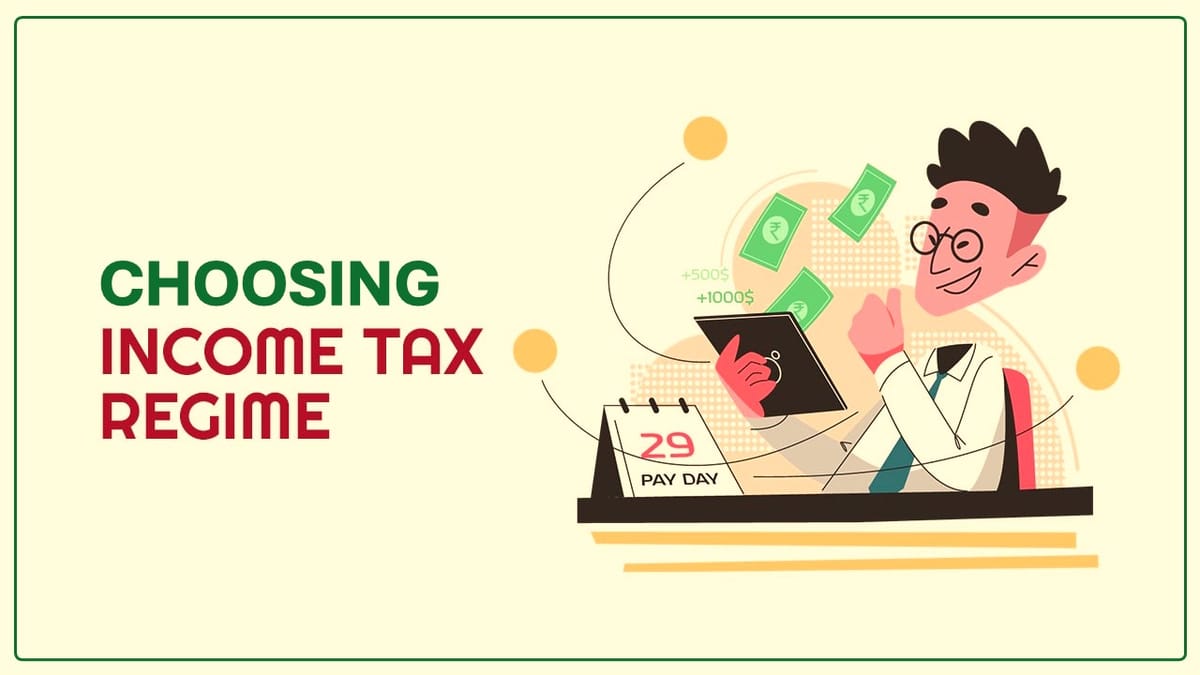In April 2024, salaried employees will need to select their income tax regime in order for their employers to deduct taxes from their salaries.
Reetu | Apr 13, 2024 |

Which Income Tax Regime to choose? Can Election result impact decision of salaried Employee
The Lok Sabha elections are scheduled for April and June of 2024, the government this year submitted an interim budget in February 2024.
During her interim budget statement, Finance Minister Nirmala Sitharaman stated, “As for tax proposals, in keeping with the convention, I do not propose to make any changes relating to taxation and propose to retain the same tax rates for direct taxes and indirect taxes, including import duties.”
Thus, the income tax laws for FY2024–25 and FY2023–24 are currently the same.
However, since the interim budget did not amend any tax rules, there is anticipation that the government will do so when it proposes the full budget for the current financial year, 2024–2025, in June or July 2024. Some or more of the tax proposals may be applicable retrospectively from April 1, 2024.
In April 2024, salaried employees will need to select their income tax regime for their employers to deduct taxes (TDS) from their salaries. Typically, the tax regime selected for salary-based TDS stays the same throughout the financial year.
Given the likelihood of future changes to income tax regulations in the full budget, how should salaried individuals select a tax regime for TDS on salary now?
The financial year 2024–25 is different since there are two budgets for that year. Employees may still need to choose the tax regime at the start of the year (April 2024) if no clarity is provided by the tax authorities. They will need to determine whether the tax regime—the old or new one—is better for them based on their overall income as well as any applicable exemptions and deductions. Furthermore, it is evident that the government wants each budget to further enhance the allure of the new tax system. As a result, while choosing, one may keep that in mind.
A Central Board of Direct Taxes (CBDT) circular dated April 2023 states that an employee must notify their employer of their decision at the beginning of the financial year, indicating their preference between the old tax regime and the new tax regime. The employer will deduct taxes from salary income in accordance with the income tax slabs of the new tax regime if no communication is received. This is so that as of April 1, 2023, the new tax regime is the default tax regime.
Regarding whether an individual can alter the tax regime for TDS on salary during the financial year, the CBDT circular is silent. Nonetheless, regardless of what was disclosed to the employer for the purpose of computing TDS on salary, income tax laws permit an individual to select any tax regime when submitting an income tax return.
Tax Experts say, “Many firms forbid their employees from making any changes to the tax regime they choose in April. The only alternative left for an employee is to proceed based on the current provisions and select the regime that best suits him since this year we will have the final budget after April. The employee will always have the opportunity to make a change when filing his tax return and selecting the regime that best serves him at that particular time, even in the improbable event that the finance minister does provide significant modifications in employment taxation.”
In case of any Doubt regarding Membership you can mail us at [email protected]
Join Studycafe's WhatsApp Group or Telegram Channel for Latest Updates on Government Job, Sarkari Naukri, Private Jobs, Income Tax, GST, Companies Act, Judgements and CA, CS, ICWA, and MUCH MORE!"